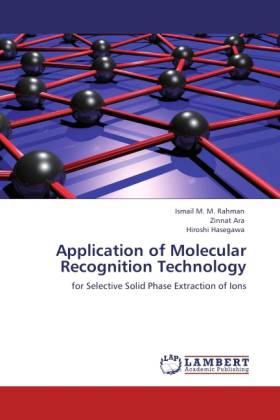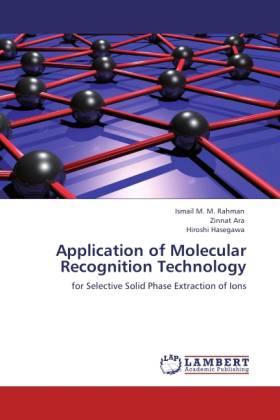
Door een staking bij bpost kan je online bestelling op dit moment iets langer onderweg zijn dan voorzien. Dringend iets nodig? Onze winkels ontvangen jou met open armen!
- Afhalen na 1 uur in een winkel met voorraad
- Gratis thuislevering in België vanaf € 30
- Ruim aanbod met 7 miljoen producten
Door een staking bij bpost kan je online bestelling op dit moment iets langer onderweg zijn dan voorzien. Dringend iets nodig? Onze winkels ontvangen jou met open armen!
- Afhalen na 1 uur in een winkel met voorraad
- Gratis thuislevering in België vanaf € 30
- Ruim aanbod met 7 miljoen producten
Zoeken
Application of Molecular Recognition Technology
for Selective Solid Phase Extraction of Ions
Ismail M M Rahman, Zinnat Ara, Hiroshi Hasegawa
Paperback | Engels
€ 58,45
+ 116 punten
Omschrijving
The first application of solid phase extraction (SPE) started approximately five decades ago, and until then development of SPE materials is continued, and it seems to be a never-ending story. Lately, research is focused in developing more explicit materials to achieve meticulous separation of ions from solutions containing complex matrices with high concentrations of interfering ions. One group of SPE materials includes those with macrocyclic ligands immobilized on a silica or polymer support; this type of SPE has been reportedly available for ion-selective separation and pre-concentration of ions, and the technique is commonly known as molecular recognition technology (MRT). In MRT, the designed 'host' materials possess a high degree of recognition to specific ions or groups of ions called 'guest', and the recognition capability remains effective at the very low concentrations of the 'guest' ion or when those present in complex matrices. In this book, application of different MRT-SPE materials for the selective separation of trace ecotoxic ions from the aqueous matrix are described, and the effects of the various chemical species or forms on MRT-based separations are discussed.
Specificaties
Betrokkenen
- Auteur(s):
- Uitgeverij:
Inhoud
- Aantal bladzijden:
- 132
- Taal:
- Engels
Eigenschappen
- Productcode (EAN):
- 9783846501016
- Verschijningsdatum:
- 7/10/2011
- Uitvoering:
- Paperback
- Formaat:
- Trade paperback (VS)
- Afmetingen:
- 152 mm x 229 mm
- Gewicht:
- 204 g

Alleen bij Standaard Boekhandel
+ 116 punten op je klantenkaart van Standaard Boekhandel
Beoordelingen
We publiceren alleen reviews die voldoen aan de voorwaarden voor reviews. Bekijk onze voorwaarden voor reviews.











